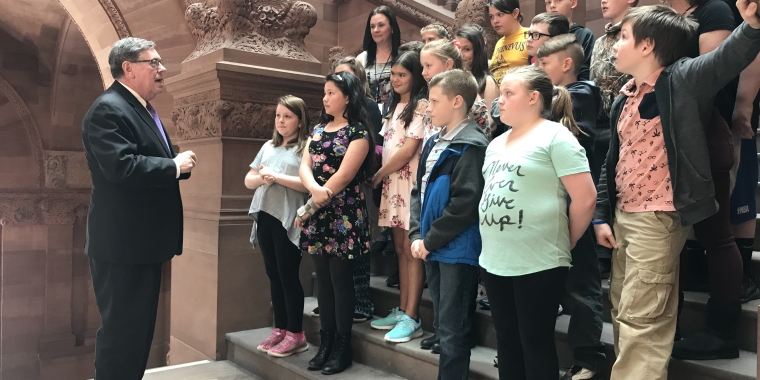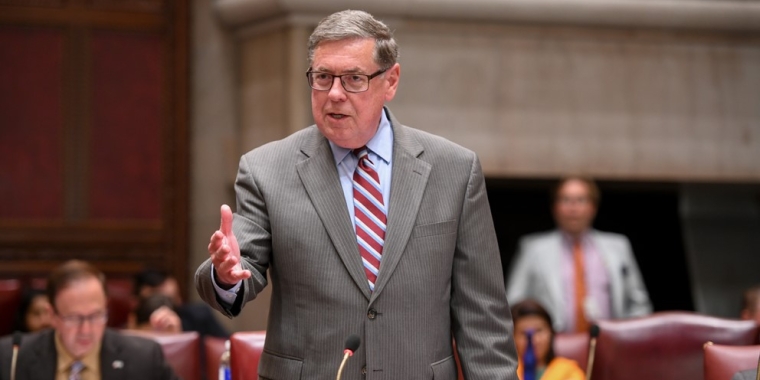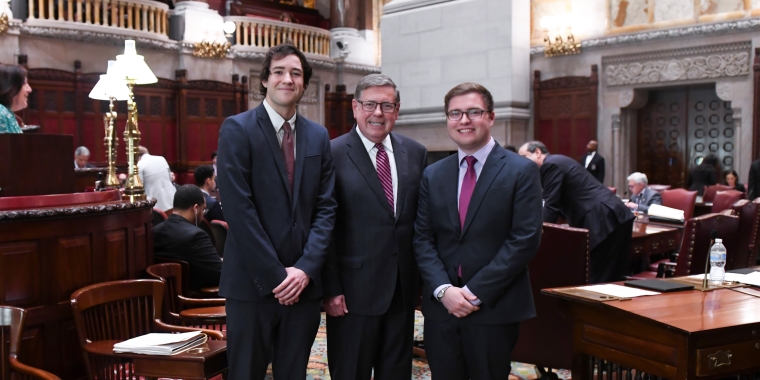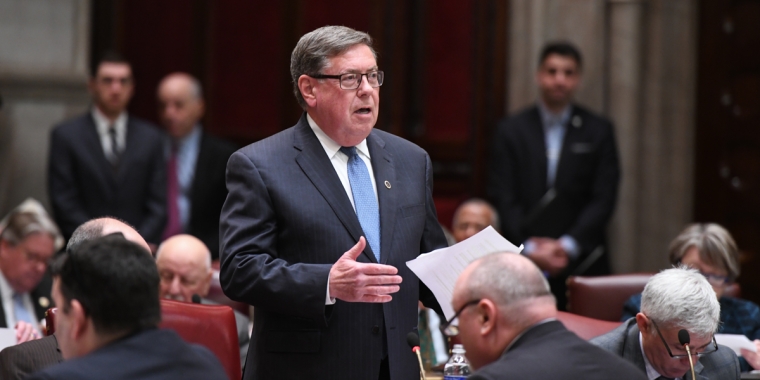
Senate Moves To Make Property Tax Cap Permanent
James L. Seward
May 20, 2015
-
ISSUE:
- Taxes
- Property Tax

ALBANY, 05/20/15 – State Senator James L. Seward (R/C/I) announced today that the New York State Senate has acted on one of its top end-of-session priorities by passing legislation to make the property tax cap permanent. The bill (S5597) would prevent the planned expiration of the tax cap to continue saving taxpayers billions of dollars each year, increase investments by businesses, and create more jobs.
“Four years ago when legislation I co-sponsored to authorize the property tax cap became law, I deemed it a common sense approach to help families and senior citizens afford to keep their homes,” said Senator Seward. “The cap has delivered over $7.6 billion in savings - just think of the dire straits homeowners and small business owners would be facing if they had to forfeit those savings. Making the property tax cap permanent will ensure that this important tool will always be in our tool chest as we work to cut taxes, improve our state's business climate, and build upon recent economic successes.”
A recent report that looked at the decades-long trends of school tax increases estimates that taxpayers have saved $7.6 billion over the past three years as a result of the property tax cap. School tax levies have risen by an average of just 2.2 percent annually -- the lowest average growth for any comparable period in New York since 1982. As voters go to the polls today to vote on school budgets, property owners are expected to save a total of $3.3 billion in 2015-16 alone due to the cap.
The property tax cap was enacted in 2011 due to senate Republican efforts to reduce New Yorkers’ tax burden. The cap limits the annual growth of property taxes levied by local governments and school districts to two percent or the rate of inflation, whichever is less. Since 2012, the vast majority of all school districts and municipalities have kept spending increases below the cap, leading to significant property tax savings for residents and businesses.
The cap was created in conjunction with a commitment to continue supporting school districts with school aid increases. This year, the senate passed an on-time budget that included a $1.4 billion increase in school aid – which reflected an increase of hundreds of millions of dollars above what the governor originally proposed – to ensure that children are college and career ready. When combined with funding for STAR and Enhanced STAR payments to school districts, overall education spending will total nearly $27 billion.
The bill has been sent to the assembly.
-30-
Share this Article or Press Release
Newsroom
Go to NewsroomSchenevus School Aid Bill Signed into Law
June 25, 2019

Statement on 2019 Legislative Session
June 21, 2019

Professor Seward Meets with Former Students
June 20, 2019

